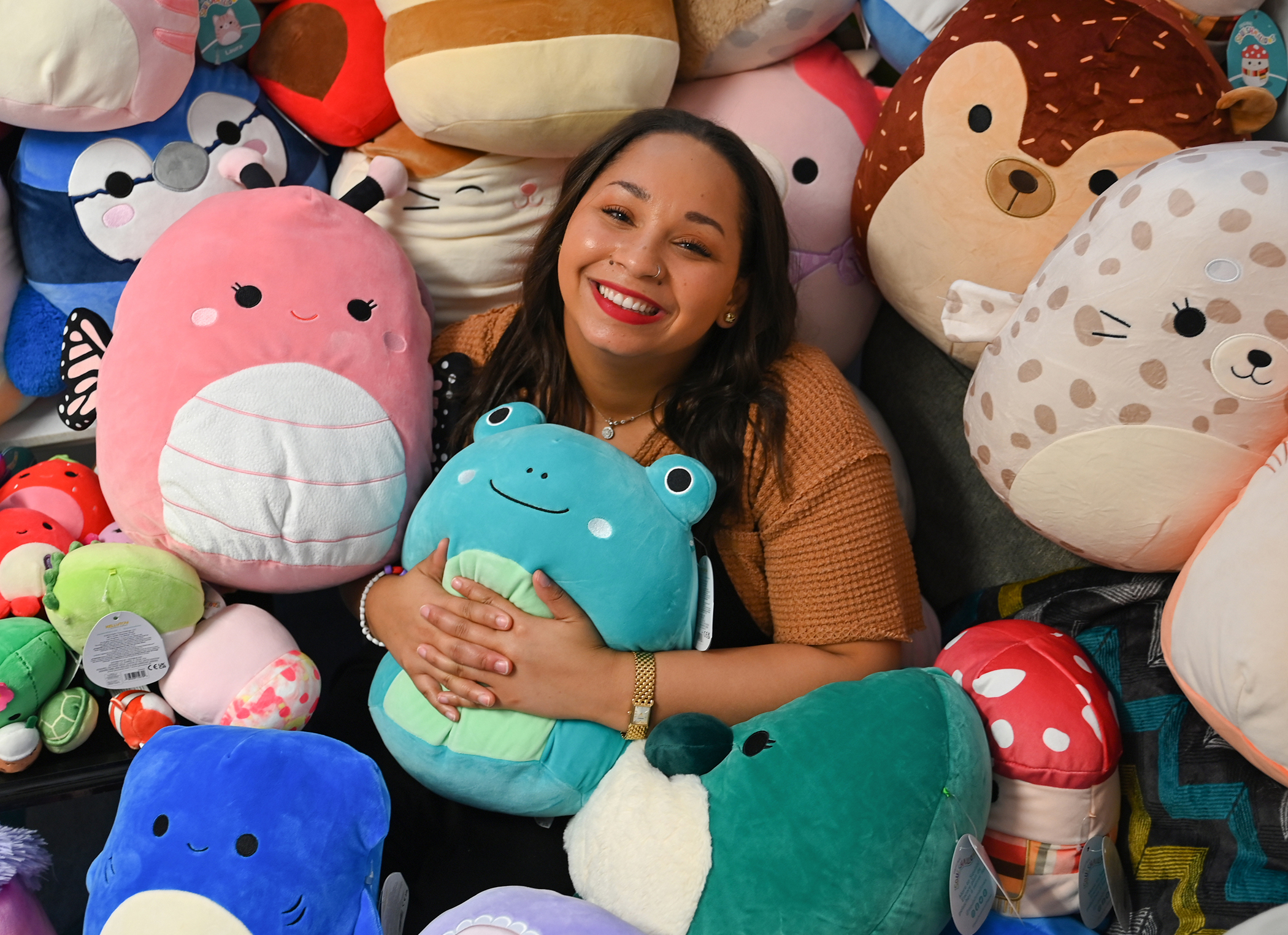University of Georgia student Jalynn Colvin was in a hard place.
The Boston native was in the midst of her Bachelor of Social Work field education requirement and she was struggling with the everyday stories encountered by groups like A Child’s Voice Child Advocacy Center, a nonprofit that coordinates care and investigations for child abuse cases in counties near Athens.
“I had a lot of emotions about it. I didn’t think this was what I wanted to do. It can be depressing, quite honestly,” said Colvin. “I had to find a way to make this work for me and feel more meaningful for me.”
In her hard place, she used small, soft Squishmallows to do just that.
The idea came to her during a lunch break. The advocacy center gave each child a token after they received services, a gift to make children feel comfortable, but the center possessed only some teddy bears and other small items. Colvin wanted to up the ante and give these children a Squishmallow, a popular round, squishy and colorful toy, to help them heal.
“I would love if the kids could really leave with something,” Colvin said. “Something cool that would make this experience more comforting, because if they’re coming here, they’re likely going through some big challenges.”
Colvin started researching fundraising ideas on the internet. She built out a plan, an outline and an Amazon wishlist, and she designed flyers to post. The agency loved Colvin’s idea, and she put up flyers and collection bins across the School of Social Work building.
Today, the effort has collected an estimated 115 Squishmallows to give to child survivors of abuse and neglect, and Colvin hopes to see the number grow. She partnered with a local business, which hung flyers and allowed employees to donate to A Child’s Voice directly from their paychecks.
A Child’s Voice averages around 300 cases per year, and it creates a child-friendly environment, complete with toys, movies, games and more for services like forensic interviews, medical exams and community outreach. The Squishmallows add to the welcoming environment.
“We try to make it as uplifting and safe as possible so the kids don’t have to do these at a police station where it’s very uncomfortable and scary,” Colvin said.
Colvin used her military service in the U.S. Army and the course material of her upper-level social work classes to make the project successful, leaning on several critical communication skills she learned to make connections and coordinate bins and flyers. Her roots in social work stem from a tough childhood, one that led her to ponder her future career.
“I thought a lot about how I want to be and what I would have needed as a kid,” Colvin said. “What I really would have benefited from was a good social worker. Almost everyone can benefit from a social worker at some point in their life.”
The veteran’s fundraising project is doing just that – benefiting children. Colvin’s perspective has changed since she started brainstorming during her lunch break, and she’s looking to meet the needs of those who depend on her.
“I think the most important thing I’ve learned is you can’t do all the good the world needs,” she said. “But the world needs all the good you can do.”


